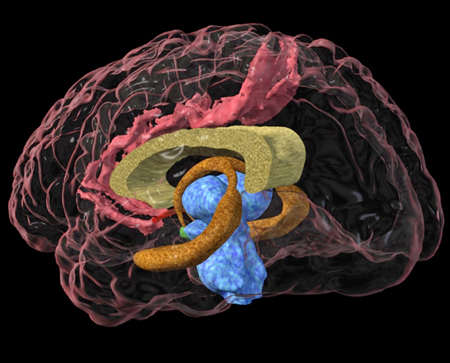Summary
Definition
History and exam
Key diagnostic factors
- exposure and response to trauma
- intrusion symptoms
- avoidance symptoms
- negative alterations in cognitions and mood
- alterations in arousal and reactivity
Other diagnostic factors
- depression
- alcohol or substance misuse
- anxiety
Risk factors
- serious accident
- experience or witness of violence or domestic violence
- natural disaster
- terrorist attack
- torture
- combat exposure
- traumatic brain injury
- sudden death of loved one
- sexual abuse or assault
- victimization by attacker
- previous trauma
- multiple major life stressors
- low social support
- history of mental disorder
- history of drug and alcohol use
- female sex
- younger age
Diagnostic tests
1st tests to order
- Post-traumatic stress disorder (PTSD) Checklist for DSM-5 (PCL-5)
- Trauma Screening Questionnaire (TSQ)
- Post-traumatic Diagnostic Scale (PDS-5)
- International Trauma Questionnaire (ITQ)
Tests to consider
- Clinician-Administered post-traumatic stress disorder Scale for DSM-5 (CAPS-5)
- Post-traumatic stress disorder (PTSD) Symptom Scale-Interview for DSM-5 (PSS-I-5)
- International Trauma Interview (ITI)
Treatment algorithm
not pregnant or breast-feeding
pregnant or breast-feeding
Contributors
Authors
Mathew Hoskins, MBBCh, MSc, MRCPsych
Consultant Psychiatrist
Cardiff and Vale University Health Board
Cardiff
Wales
Disclosures
MH was a Principal Investigator for a Phase 2 clinical trial of MDMA-assisted therapy in PTSD, sponsored by the Multidisciplinary Association of Psychedelic Studies; he has been reimbursed for training expenses. He is a co-founder of a medical cannabis private clinic in Wales and receives payment for consultations. MH is an author of references cited in this topic.
Catrin Lewis, BSc, PhD
Research Associate
National Centre for Mental Health
Institute of Psychological Medicine and Clinical Neurosciences
School of Medicine
Cardiff University
Cardiff
Wales
Disclosures
CL is one of the originators of Spring, a digital guided self help program for PTSD. CL is an author of references cited in this topic.
Acknowledgements
Dr Mathew Hoskins, and Dr Catrin Lewis would like to gratefully acknowledge Professor Stanley Zammit, Professor Neil P. Roberts, Professor Jonathan I. Bisson, and Dr Steve Wood, previous contributors to this topic.
Peer reviewers
Mort Rubinstein, MD
Deputy Associate Chief of Staff
Mental Health
VA New York Harbor Healthcare System
Clinical Associate Professor
New York University School of Medicine
New York
NY
Disclosures
MR declares that he has no competing interests.
Neil Greenberg, MD, MRCPsych
Surgeon Commander
Royal Navy
Defence Professor of Mental Health, Visiting Professor of Psychiatry, and Co-Director
Academic Centre for Defence Mental Health
King's College London
London
UK
Disclosures
NG has been principal investigator on studies with research funding greater than 6 figures USD. NG is a director of a company providing early intervention training for traumatic stress (the company does not provide PTSD treatment services).
Peer reviewer acknowledgements
BMJ Best Practice topics are updated on a rolling basis in line with developments in evidence and guidance. The peer reviewers listed here have reviewed the content at least once during the history of the topic.
Disclosures
Peer reviewer affiliations and disclosures pertain to the time of the review.
References
Key articles
American Psychiatric Association. Diagnostic and statistical manual of mental disorders, 5th ed., text revision (DSM-5-TR). Washington, DC: American Psychiatric Publishing; 2022.Full text
World Health Organization. International statistical classification of diseases and related health problems (ICD). 11th revision. 2025 [internet publication].Full text
American Psychological Association. Clinical practice guideline for the treatment of posttraumatic stress disorder (PTSD) in adults. Feb 2025 [internet publication].Full text
U.S. Department of Veterans Affairs. VA/DOD clinical practice guidelines: management of posttraumatic stress disorder and acute stress disorder 2023 [internet publication].Full text
Phoenix Australia. Australian guidelines for the prevention and treatment of acute stress disorder, posttraumatic stress disorder and complex PTSD. 2021 [internet publication].Full text
National Institute for Health and Care Excellence. Post-traumatic stress disorder. Dec 2018 [internet publication].Full text
Reference articles
A full list of sources referenced in this topic is available to users with access to all of BMJ Best Practice.

Differentials
- Depression
- Specific phobias
- Panic disorder
More DifferentialsGuidelines
- Clinical practice guideline for the treatment of posttraumatic stress disorder (PTSD) in adults
- Mental Health Gap Action Programme (mhGAP) guideline for mental, neurological and substance use disorders: executive summary
More GuidelinesPatient information
Post-traumatic stress disorder: what is it?
Post-traumatic stress disorder: questions to ask your doctor
More Patient informationLog in or subscribe to access all of BMJ Best Practice
Use of this content is subject to our disclaimer